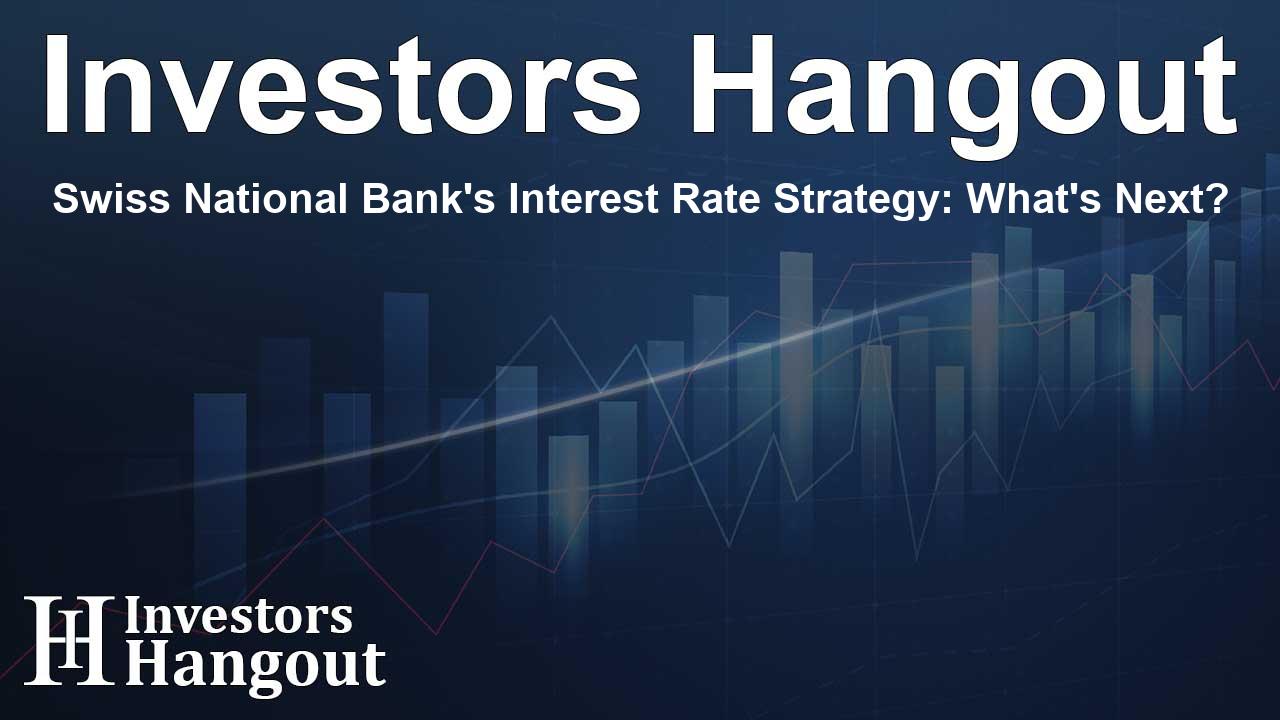Swiss National Bank's Interest Rate Strategy: What's Next?

Swiss National Bank Takes Action
The Swiss National Bank (SNB) has recently made headlines by becoming the first major central bank to lower interest rates. This move comes in response to a decrease in inflation, which has now returned to the SNB’s target range.
Examining Switzerland's Inflation Patterns
Switzerland has managed to keep inflation relatively low compared to other large economies. For example, the overall inflation rate was reported at 1.3% last month, primarily driven by increasing rental costs. However, when rental expenses are excluded, the inflation rate drops to 0.8%, indicating a potential decrease in underlying prices.
Forecasting Future Inflation
Analysts from Alpine Macro predict that if the current downward trend continues, overall inflation could fall below 1%. This scenario raises concerns for the SNB, as persistently low inflation can jeopardize economic stability, especially given the country’s sluggish growth and rising unemployment rates.
The Present Economic Landscape
The outlook for the Swiss economy is becoming more challenging. Various indicators suggest a trend of slow growth, with the Purchasing Managers' Index (PMI) remaining below the crucial 50 mark. This suggests that weak economic activity is likely to continue.
Job Market and Economic Growth
Moreover, data from the Employment PMI shows a softening labor market, which raises alarms about increasing unemployment. The combination of lower inflation and weak growth could lead the SNB to consider more accommodating monetary policies.
Wage Growth and Its Impact on Inflation
The slowdown in wage growth is playing a role in the decline of inflation, particularly within the services sector. Since services, excluding rent, make up a significant portion of the Consumer Price Index (CPI), any deceleration in this area could further lower the overall inflation rate. As a result, the SNB might be compelled to implement more aggressive interest rate cuts.
Market Predictions and Future Outlook
Market analysts are forecasting that the SNB may lower interest rates to around 0.5% by mid-2025. However, some experts believe this outlook could be overly cautious. If inflation continues to decrease, the SNB may need to consider additional rate cuts, potentially bringing rates down to zero. This scenario would imply a real interest rate of -0.5%, assuming inflation stabilizes at 0.5%.
Insights from History
Former SNB President Thomas Jordan has noted that the neutral real policy interest rate is close to zero. If inflation falls below the SNB’s target, the central bank may have to adopt a more stimulative monetary policy by cutting rates below this neutral level, which could lead to a zero-interest-rate policy aimed at countering deflationary pressures.
Considerations for Investors
According to Alpine Macro, investors should think about maintaining a longer duration for Swiss bonds to capitalize on rising bond prices if the SNB lowers rates to zero. However, for those managing global fixed-income portfolios, it may be wise to slightly reduce their exposure to Swiss bonds, as other central banks may have greater capacity to cut rates, presenting more attractive opportunities elsewhere.
Currency Impact and Global Perspectives
The narrowing interest rate differentials could result in a further strengthening of the Swiss franc. This suggests that international bond investors might want to avoid hedging their foreign exchange risk associated with the currency. Additionally, Switzerland’s economic situation may provide insights into potential trends in other G10 economies, where unexpected declines in inflation could similarly pressure central banks to modify their monetary policies.
Frequently Asked Questions
What has prompted the SNB to lower interest rates?
The SNB has reacted to a decrease in inflation that has returned to its target range, raising concerns about potential economic instability.
How does Switzerland's inflation compare to other countries?
Switzerland has experienced milder inflation compared to many major economies, leading to some distinctive monetary policy actions.
What are the potential risks of low inflation?
Low inflation can negatively impact economic stability, resulting in slower growth and increased unemployment, which are current concerns for the Swiss economy.
What do analysts predict for future interest rates?
Market expectations suggest that the SNB could further reduce rates to around 0.5% by mid-2025, although this may change based on inflation trends.
How might the SNB’s actions affect investors?
Investors may need to adjust their bond portfolios in light of anticipated interest rate changes, especially if the SNB moves rates closer to zero.
About The Author
Contact Lucas Young privately here. Or send an email with ATTN: Lucas Young as the subject to contact@investorshangout.com.
About Investors Hangout
Investors Hangout is a leading online stock forum for financial discussion and learning, offering a wide range of free tools and resources. It draws in traders of all levels, who exchange market knowledge, investigate trading tactics, and keep an eye on industry developments in real time. Featuring financial articles, stock message boards, quotes, charts, company profiles, and live news updates. Through cooperative learning and a wealth of informational resources, it helps users from novices creating their first portfolios to experts honing their techniques. Join Investors Hangout today: https://investorshangout.com/
The content of this article is based on factual, publicly available information and does not represent legal, financial, or investment advice. Investors Hangout does not offer financial advice, and the author is not a licensed financial advisor. Consult a qualified advisor before making any financial or investment decisions based on this article. This article should not be considered advice to purchase, sell, or hold any securities or other investments. If any of the material provided here is inaccurate, please contact us for corrections.
